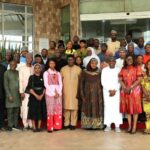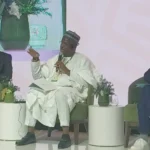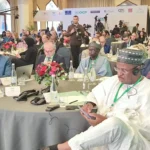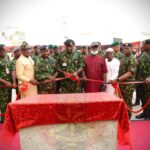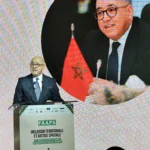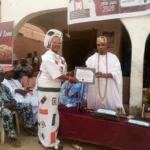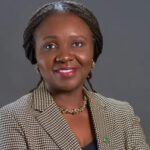By Funmilola Gboteku
The Founder of Eko Innovation Centre, Lagos, Mr Victor Afolabi, says Nigeria needs homegrown cyber security solutions that understand the challenges of its local environment.
Afolabi, also the Curator of Art of Technology Lagos, made this known during the grand finale of the Secure Hack 1.0 event powered by Eko Innovation Centre on Saturday evening in Lagos.
He said that one of the major challenges of technology adoption in Nigeria was cost barrier.
The founder said that most tech people in Nigeria today had to buy laptops and smart devices which are foreign to do their jobs, adding that the devices were usually very expensive .
“Looking at the cyber security solutions, anti-viruses that we buy, many of them are paid for in Forex and the sad thing is that they are ridiculously expensive because the dollar rate keeps going up.
“This cost element increases the vulnerabilities of organisations in emerging markets like Nigeria.
“When a cyber security solution is too expensive, only few would be able to afford it and that leaves many organisations vulnerable to cyber attacks.
“How do we protect ourselves when we do not have homegrown solutions,” he said.
Afolabi said Nigerians need solutions developed here either for cyber crime or physical crime that people could pay for using Naira.
He said that the way our cyberspace would be more secured because people would be able to afford the cyber security solutions.
Afolabi said that was why the innovation centre put together hackathons like the secure hack 1.0 to encourage young talents with innovative ideas.
The founder said that when solutions are homegrown, its maintenance would be easy and one would not have to start sending messages to the manufacturer unlike when it’s imported.
He said: “Hopefully as the Nigerian tech market matures, things would get better. 20 years ago nobody was building softwares in Nigeria, but today we are beginning to see foreign people using our talents.
“They are now taking our talents abroad and paying them a lot of money to build solutions for global use,” Afolabi said.
He noted that soon banks and other organisations would start using locally-developed cyber security solutions when the market matures.
Afolabi added that one day, Nigerian talents would build solutions that would be at per with international solutions.
Speaking on the Secure Hack 1.0, he said that the hackathon, which was launched in February, garnered over 400 registrations from participants to form 100 plus teams from 62 locations in four countries and across two continents.
He said that the teams were split into groups of four and were required to work together for three weeks, brainstorming and identifying new concepts based on their focus areas which include cybersecurity, physical security, and biosecurity.
Afolabi said that the best team would have the chance to win N2,000,000 prize pool and an acceleration programme investment to get their products ready for the market among other benefits.
NAN reports that some of the teams that participated are Cyber Hive Pitch Desk, a platform that offers cyber security education; Health Waka, a platform that provides seamless tracing and tracking of sick people; Team 9 and Team 18, among others.
After the pitching of ideas, team Health Waka was declared winner of the N2,000,000 pool prize by a group of Jurors.
Some of the Jurors were Dr Obadare Peter Adewale, Co-founder, Digital Encode Limited; Ayodele Olojede, Group Head, Emerging Businesses Africa, Access Bank, and David Ali, Chief Information, Security Officer, Airtel among others. (NAN) (www.nannews.ng)
Edited by Vincent Obi

